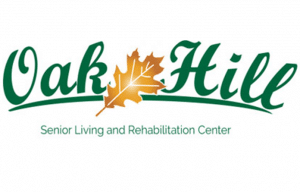Stumpy’s shifts to sanitizer

A rural Columbia business is adapting to the coronavirus pandemic in a way different than most – shifting its entire operation to focus on helping fight the virus.
That business is Stumpy’s Spirits Distillery, which is working with other area groups to manufacture hand sanitizer that contains 80 percent alcohol.
“We started talking about it, and it makes a lot of sense for us to do this,” Stumpy’s owner and distiller Adam Stumpf said. “There’s a huge need for it. If it’s not on the store shelves, that means the institutions that need it, essential businesses and all those types of places are going to need it too.”
Stumpf said he realized making sanitizer was feasible because one of the main ingredients in most hand sanitizers is ethanol, which Stumpy’s makes every day for its liquors.
As Stumpf was considering that, noting his business had enough scale to at least make an impact in the local community, the federal government announced it was loosening restrictions to allow beverage distilleries to manufacture sanitizer.
After that, Stumpy’s began ordering the ingredients it would need to make hand sanitizer using the World Health Organization’s recipe, which includes products not normally at the distillery such as hydrogen peroxide.
As the distillery prepared to make sanitizer over the third weekend in March, it realized it would have a “bottleneck” with procuring those types of ingredients and manufacturing the sanitizer, but it had a system to package and distribute it in place.
Then – the Monday after the distillery realized this – Waterloo resident John Caupert contacted Stumpf.
Caupert is executive director of the National Corn-to-Ethanol Research Center with Southern Illinois University Edwardsville.
His team was also planning to make sanitizer, but they realized they could handle the procurement and manufacturing. The NCERC’s problem would be with packaging and distribution.
The two Monroe County men realized they could solve each other’s problems and decided to work together.
“NCERC looks forward to working with Stumpy’s Distillery,” Caupert said when the partnership was announced. “Together, we will assist the region, state and nation in defeating the coronavirus spread.”
“We were able to put together a group solution that is far more effective than our individual efforts would have been,” Stumpf agreed. “I think we have the opportunity to make a real and significant impact here.”
“It has been basically pedal to the metal since that point,” Stumpf added.
For its part, Stumpy’s spent three days clearing out space in its facility and converting its packaging line for sanitizer containers.
It made one small batch of sanitizer because it had already ordered the ingredients, but now the NCERC is handling production.
“It will basically be just production and packaging for the foreseeable future, day and night,” Stumpf said.
The distillery has also stopped producing alcohol for now, but it is not looking to make up for any lost profits with the hand sanitizer.
“We’re not trying to really make any money on this stuff,” Stumpf explained. “We’re just trying to cover our costs, keep our people employed, keep the lights on in our business and try to help as many people as we can.”
Another key player in this process has been Budnick Converting in Columbia, which is making government-approved labels for the hand sanitizer.
Stumpf, who had not yet worked with Budnick Converting, said that company has been crucial because it was able to make and begin printing labels in three days when it normally takes about a month.
“It’s absolutely unheard of,” Stumpf said of that work. “We wouldn’t even have a mechanism to get this out to the public if it wasn’t for them.”
While the goal is to make sanitizer for the local area – find out more by clicking here – the priority is filling orders for people like first responders and health care workers.
Stumpf said they have already received requests from the Illinois Department of Corrections, hospitals, post offices, day cares and private companies as big as Ameren.
“There’s just all kinds of people who need this stuff,” Stumpf noted. “We’re trying to prioritize as best we can for those who are out on the frontlines who are really at risk of being exposed to this crazy thing.”






